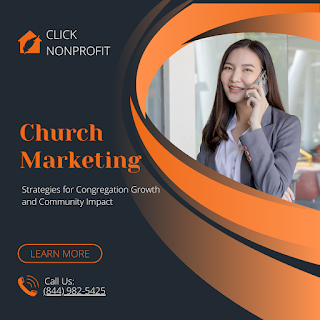10 Powerful Church Marketing Strategies to Boost Your Online Presence
Introduction:
In today's digital age, having a strong online presence is crucial for churches to reach and engage with their congregation and the wider community. Implementing effective church marketing strategies can help boost your online presence and make a meaningful impact. In this blog post, we will explore 10 powerful church marketing strategies that can elevate your online visibility, engage your audience, and ultimately contribute to the growth and success of your church.
1. Define Your Target Audience:
Understanding your target audience is the foundation of any successful marketing strategy. Identify who you want to reach, their needs, preferences, and demographics. This knowledge will guide your marketing efforts and enable you to tailor your messages and content to resonate with your intended audience.
2. Create a Compelling Website:
Your church's website is the digital front door to your community. Ensure it is visually appealing, user-friendly, and optimized for mobile devices. Provide relevant information about your church, its values, services, and events. Incorporate engaging content such as sermons, testimonials, and blog articles to keep visitors coming back for more.
3. Optimize for Search Engines (SEO):
Implementing SEO strategies will help your website rank higher in search engine results, increasing your visibility online. Research and incorporate relevant keywords in your website's content, meta tags, and headers. Focus on local SEO to attract individuals in your community searching for a church.
4. Leverage Social Media Platforms:
Harness the power of social media to connect with your congregation and extend your reach. Create and maintain active profiles on platforms like Facebook, Twitter, Instagram, and YouTube. Share inspirational content, event updates, and engage in meaningful conversations with your followers. Encourage them to share your content with their networks.
5. Engage with Email Marketing:
Email marketing remains an effective tool for church communication. Build an email list by offering valuable resources, such as ebooks or newsletters, and send regular updates, event invitations, and devotionals. Personalize your messages and segment your audience to provide relevant and targeted content.
6. Harness the Potential of Video:
Video content is highly engaging and shareable. Consider live streaming your sermons, hosting virtual events, or sharing testimonial videos. Post these videos on your website and social media channels to amplify your reach and engage a wider audience.
7. Implement Online Advertising:
Invest in online advertising to expand your reach and attract new visitors. Platforms like Google Ads and social media ads offer precise targeting options to reach individuals within your community or specific demographics. Allocate a budget and test different ad formats to find what resonates best with your audience.
8. Encourage Online Reviews and Testimonials:
Positive reviews and testimonials can significantly impact people's perception of your church. Encourage your congregation to leave reviews on platforms like Google My Business, Yelp, and Facebook. Display these testimonials on your website to build trust and credibility with potential visitors.
9. Collaborate with Influencers:
Partnering with local influencers or community leaders can amplify your message and help you reach new audiences. Identify individuals who align with your church's values and mission. Collaborate on projects, events, or content creation to leverage their influence and extend your reach.
10. Analyze and Adapt:
Regularly monitor and analyze the performance of your marketing efforts. Use website analytics, social media insights, and email marketing metrics to understand what strategies are working and what needs improvement. Adapt your approach based on the data to continually optimize your church's marketing efforts.
Conclusion:
By implementing these ten powerful church marketing strategies, you can significantly enhance your church's online presence and effectively connect with your congregation and the broader community. Embrace digital tools and platforms, create compelling content, and engage with your audience consistently to foster meaningful relationships and establish a thriving online community. Remember to regularly analyze and measure the effectiveness of your strategies to make necessary adjustments and improvements.



Comments
Post a Comment